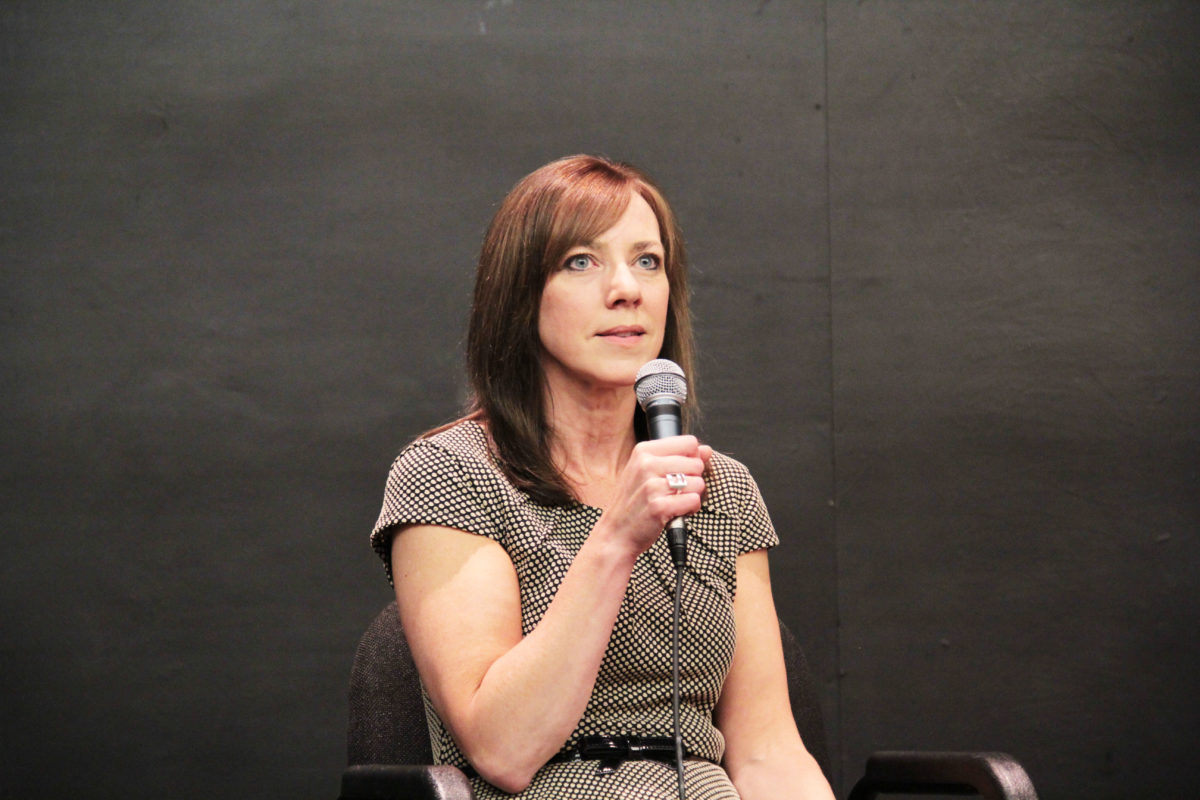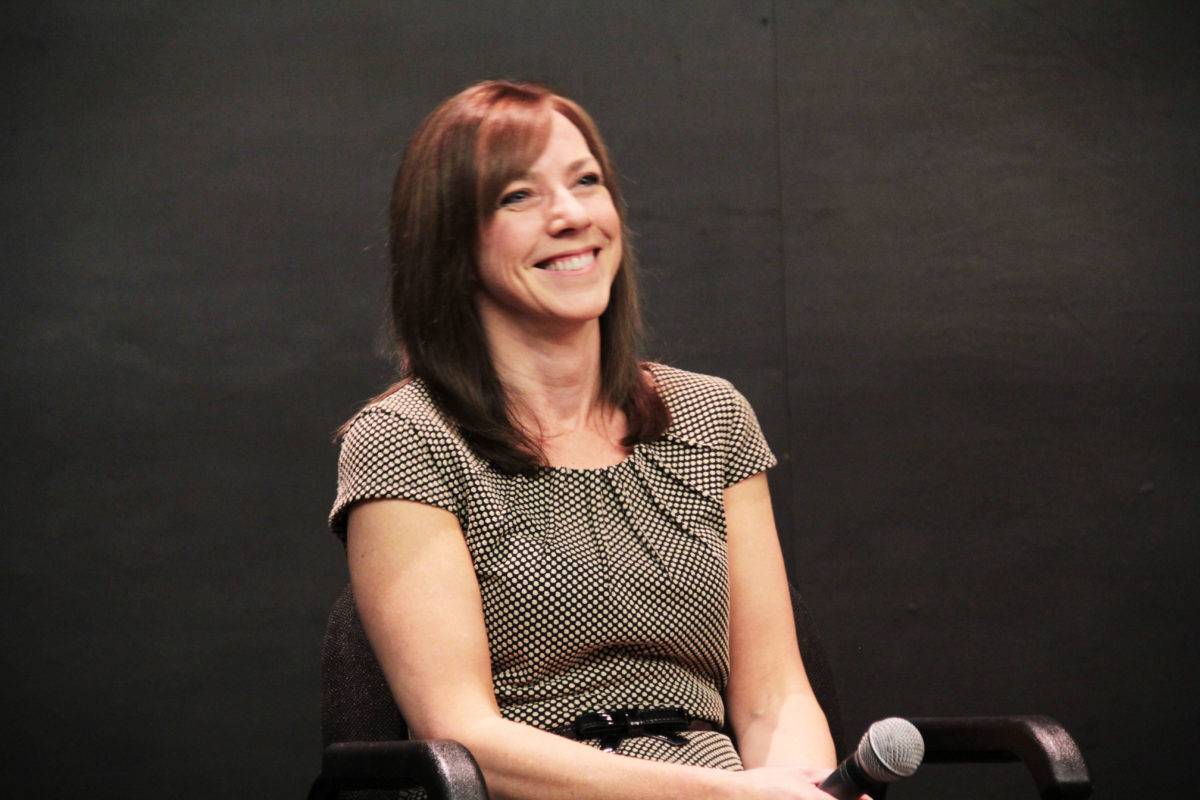Though Bobbi-Jean MacKinnon was emotionally affected by the trial of Dennis Oland, she says she

remained objective while writing Shadow of Doubt: The Trial of Dennis Oland.
“As a reporter, objectivity is very important, and this case is very much ongoing,” said MacKinnon at her book launch lecture in Ted Daigle Auditorium on Thursday night.
The ability to look at the trial from an objective viewpoint could be a factor most are looking for in a book covering such a large case.
Jan Wong, a professor of journalism at St. Thomas University, was the questioner at the book launch. Wong discussed how in the beginning of the book she thought that Oland was not guilty but near the end, her opinion changed. She also attempted to acquire MacKinnon’s opinion on the matter but MacKinnon didn’t budge.
On July 7, 2011, Richard Oland, prominent business man and multi-millionaire, and part of the Oland family who owns Moosehead Breweries Ltd., was found dead in his office by his longtime secretary. A week after the murder, Richard’s son, Dennis Oland, had his house searched by authorities. The investigation lasted two years before Oland was arrested. After a 50-day trial he was convicted of second-degree murder. His lawyers are now filing for an appeal.
Peter Simpson, the Irving Chair in Journalism at STU, worked with MacKinnon over 20 years ago in Saint John, New Brunswick.
“[MacKinnon] is naturally suspicious, which is a good thing for an investigative reporter,” Simpson said.
Simpson said he couldn’t express how essential that quality is when it comes to a project such as writing a book dealing with the Oland case. He has not the read the book himself, but said in order to make the book intriguing for a general audience it has to take what we know and cast it in a new light for those who have followed the case closely, but also for the individuals who haven’t.
Karla O’Regan, a professor of criminology at STU, is under the same impression. She believes the general audience will buy the book for the details that might not be readily available to the public.
However, as a scholar of criminal justice, O’Regan said, “I would want a critical take on the case … a tackling of the central issues the case raises.”
For example, the bail hearing, trying to acquire an appeal, or reassessing police conduct. She said she doesn’t want the book to be just a sensationalization of the case.
During the question portion of the book launch lecture, people eagerly raised their hands in the hopes of getting their questions answered. The book already has an audience that is intrigued by the topic.

